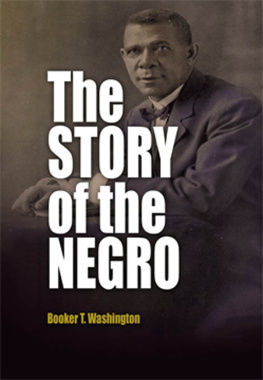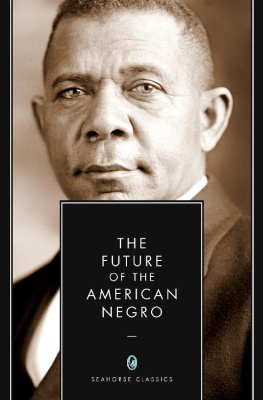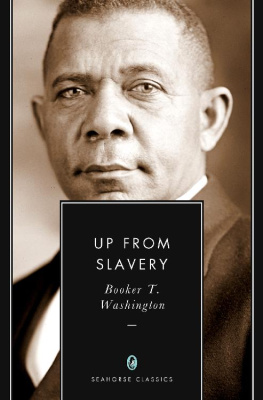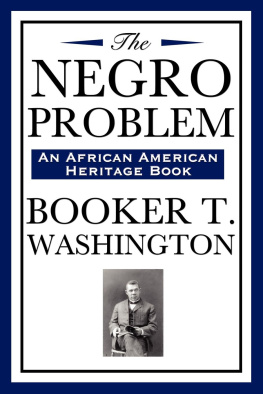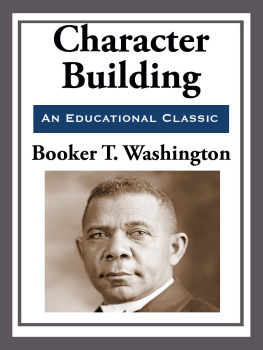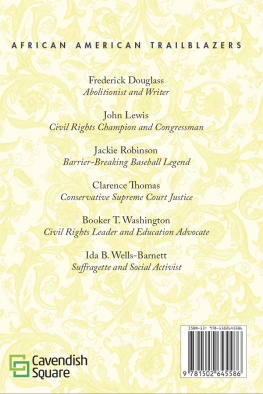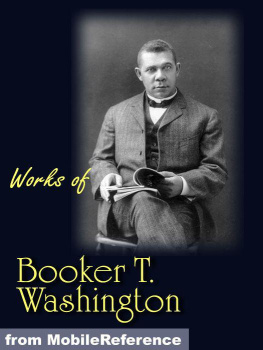Booker T. Washington - My Larger Education
Here you can read online Booker T. Washington - My Larger Education full text of the book (entire story) in english for free. Download pdf and epub, get meaning, cover and reviews about this ebook. year: 2013, publisher: Dover Publications, genre: Non-fiction / History. Description of the work, (preface) as well as reviews are available. Best literature library LitArk.com created for fans of good reading and offers a wide selection of genres:
Romance novel
Science fiction
Adventure
Detective
Science
History
Home and family
Prose
Art
Politics
Computer
Non-fiction
Religion
Business
Children
Humor
Choose a favorite category and find really read worthwhile books. Enjoy immersion in the world of imagination, feel the emotions of the characters or learn something new for yourself, make an fascinating discovery.

- Book:My Larger Education
- Author:
- Publisher:Dover Publications
- Genre:
- Year:2013
- Rating:4 / 5
- Favourites:Add to favourites
- Your mark:
- 80
- 1
- 2
- 3
- 4
- 5
My Larger Education: summary, description and annotation
We offer to read an annotation, description, summary or preface (depends on what the author of the book "My Larger Education" wrote himself). If you haven't found the necessary information about the book — write in the comments, we will try to find it.
My Larger Education — read online for free the complete book (whole text) full work
Below is the text of the book, divided by pages. System saving the place of the last page read, allows you to conveniently read the book "My Larger Education" online for free, without having to search again every time where you left off. Put a bookmark, and you can go to the page where you finished reading at any time.
Font size:
Interval:
Bookmark:

My Larger Education
Being Chapters from My Experience
BOOKER T. WASHINGTON

DOVER PUBLICATIONS, INC.
Mineola, New York
Copyright
Note copyright 2013 by Dover Publications, Inc.
All rights reserved.
Bibliographical Note
My Larger Education: Being Chapters from My Experience, first published by Dover Publications, Inc., in 2013, is a republication of the work first published by Doubleday, Page & Company, Garden City, New York, in 1911.
International Standard Book Number
eISBN-13: 978-0-486-78272-0
Manufactured in the United States by Courier Corporation
49318001 2013
www.doverpublications.com
Note
Born in 1856 to a mother who was a slave on a Virginia plantation, Booker T. Washington was closed off from any opportunities to better himself through education. At a time in American history when it was against the law to educate slaves, Booker observed white children learning to read and write, and he was determined to do the same. After he and his mother moved to West Virginia, Booker began working in a salt mine. Using a book that his mother had given him, Booker learned to read. After becoming a houseboy for a mine owner, his employers wife, aware of his interest in learning, permitted him to attend school for one hour a day.
Booker left his employer in 1872 and walked hundreds of miles to his destination: the Hampton Normal Agricultural Institute, where he hoped to continue his learning. He was awarded a scholarship to the Institute and graduated in 1875, going on to teach at the school he had attended as a child in Virginia. In 1879, he was offered a teaching position at the Hampton Institute. Several years later, the Tuskegee Normal and Industrial Institute (now Tuskegee University) was founded in Alabama to provided vocational training for African American students. Booker Washington was recommended for the position of running Tuskegee, and he became both a skilled administrator and fundraiser. The school was a success, due to Washingtons efforts and his determination to bring African Americans closer to participation in American society.
Washington realized that in post-Civil-War America, blacks needed to prove their worth. Because he was a proponent of gradual change, rather than the more immediate progress demanded by black activists such as W. E. B. Du Bois as well as liberal whites, he encountered opposition to his methods. His reluctance to push
quickly for the participation of blacks in the political and economic realms of America put him on the other side of the activists call for change. This conflict continued with the conciliatory tone of his first autobiography, Up from Slavery (1901), which confirmed his belief that hard work and education, over time, would benefit such disenfranchised groups as blacks and Native Americans. Washington continued on as head of the Tuskegee Institute until his death in 1915.
In My Larger Education: Being Chapters from My Experience (1911), Booker T. Washington recounts the opposition from several sources to his goals to educate African Americans: Blacks who found his emphasis on job trainng too reminiscent of the endless labor they had experienced as slaves; Southerners who resisted any education of blacks; and Northerners who found his emphasis on vocational training too narrowly focused. Accordingly, he writes:
There was the temptation to say to the white man the thing that the white man wanted to hear; to say to the coloured man the thing that he wanted to hear; to say one thing in the North and another in the South.
Washington concluded that first, he must be perfectly frank and honest in dealing with each of the three classes of people, and second, he should not depend on any short-cuts or expedients merely for the sake of gaining temporary popularity or advantage, whether for the time being such action brought me popularity or the reverse. During his travels throughout the South, as well as to London, Italy, Denmark, and Eastern and Central Europe, he further developed his ideas about how best to develop educational policies for American blacks. Certainly, Washingtons struggle to overcome the legacy of slavery through education was his gift to generations of African Americans.
Contents
My Larger Education
I. LEARNING FROM MEN AND THINGS
IT HAS BEEN my fortune to be associated all my life with a problema hard, perplexing, but important problem. There was a time when I looked upon this fact as a great misfortune. It seemed to me a great hardship that I was born poor, and it seemed an even greater hardship that I should have been born a Negro. I did not like to admit, even to myself, that I felt this way about the matter, because it seemed to me an indication of weakness and cowardice for any man to complain about the condition he was born to. Later I came to the conclusion that it was not only weak and cowardly, but that it was a mistake to think of the matter in the way in which I had done. I came to see that, along with his disadvantages, the Negro in America had some advantages, and I made up my mind that opportunities that had been denied him from without could be more than made up by greater concentration and power within.
Perhaps I can illustrate what I mean by a fact I learned while I was in school. I recall my teachers explaining to the class one day how it was that steam or any other form of energy, if allowed to escape and dissipate itself, loses its value as a motive power. Energy must be confined; steam must be locked in a boiler in order to generate power. The same thing seems to have been true in the case of the Negro. Where the Negro has met with discriminations and with difficulties because of his race, he has invariably tended to get up more steam. When this steam has been rightly directed and controlled, it has become a great force in the upbuilding of the race. If, on the contrary, it merely spent itself in fruitless agitation and hot air, no good has come of it.
Paradoxical as it may seem, the difficulties that the Negro has met since emancipation have, in my opinion, not always, but on the whole, helped him more than they have hindered him. For example, I think the progress which the Negro has made within less than half a century in the matter of learning to read and write the English language has been due in large part to the fact that, in slavery, this knowledge was forbidden him. My experience and observation have taught me that people who try to withold the best things in civilization from any group of people, or race of people, not infrequently aid that people to the very things that they are trying to withhold from them. I am sure that, in my own case, I should never have made the efforts that I did make in my early boyhood to get an education and still later to develop the Tuskegee Institute in Alabama if I had not been conscious of the fact that there were a large number of people in the world who did not believe that the Negro boy could learn or that members of the Negro race could build up and conduct a large institution of learning.
A wider acquaintance with men in all the different grades of life taught me that the Negros case is not peculiar. The majority of successful men are persons who have had difficulties to overcome, problems to master; and, in overcoming those difficulties and mastering those problems, they have gained strength of mind and a clearness of vision that few persons who have lived a life of ease have been able to attain. Experience has taught me, in fact, that no man should be pitied because, every day in his life, he faces a hard, stubborn problem, but rather that it is the man who has no problem to solve, no hardships to face, who is to be pitied.
Next pageFont size:
Interval:
Bookmark:
Similar books «My Larger Education»
Look at similar books to My Larger Education. We have selected literature similar in name and meaning in the hope of providing readers with more options to find new, interesting, not yet read works.
Discussion, reviews of the book My Larger Education and just readers' own opinions. Leave your comments, write what you think about the work, its meaning or the main characters. Specify what exactly you liked and what you didn't like, and why you think so.

